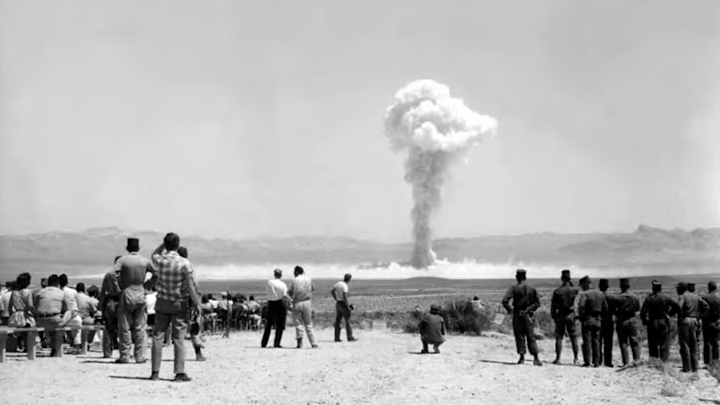During the 1950s, the U.S. performed roughly 100 nuclear tests aboveground in the Nevada desert. This research looked at many factors, including how an average house might stand up against a nuclear explosion. Answers varied from "poorly" to "not at all" depending on how close the structures stood to ground zero. See for yourself how these buildings fared in this video from Smithsonian's YouTube channel.
The model towns built on nuclear test sites—known as "doomtowns"—were designed to resemble a typical American community. They had fake stores, gas stations, and homes filled with mannequins that stood in for an average family.
As you can see in the historic footage, some of the models didn't survive the tests. One home close to the detonation zone was reduced to a cloud of dust and debris within seconds. Another house located 6000 feet away from ground zero sustained serious damage; the heat from the blast instantly stripped the paint from the wooden structure, and the force blew off the gutters and blinds and shifted the brick chimney by six inches. But despite the power of the bomb, the house didn't topple, and it was still standing in the Nevada desert when the video was released five years ago.
You can learn more about the "doomtown" nuclear tests and their chilling results in the video below. Here is more astonishing footage from the peak of nuclear testing in the 1940s, '50s, and '60s.
